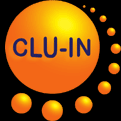Search Result
NOVEL PCB-DEGRADING RHODOCOCCUS STRAINS ABLE TO PROMOTE PLANT GROWTH FOR ASSISTED RHIZOREMEDIATION OF HISTORICALLY POLLUTED SOILS
Vergani, L., F. Mapelli, J. Suman, T. Cajthaml, O. Uhlik, and S. Borin.
PLoS ONE 14(8): e0221253(2020)
Filed Under: Research
Filed Under: Research
Rhizoremediation was investigated as a method to treat PCB-contaminated soil from the highly polluted SIN Brescia-Caffaro site in Italy using bacterial strains with the potential to degrade PCBs as well as promote plant and root development. Aerobic bacteria from the site were biostimulated by the plant Phalaris arundinacea. The isolated strains, selected based on their ability to grow on biphenyl and plant secondary metabolites, were largely dominated by Actinobacteria, and a significant number showed traits of interest for remediation, harboring genes homologous to bphA involved in the PCB oxidation pathway and displaying 2,3-catechol dioxygenase activity and emulsification properties. Several strains also showed the potential to alleviate plant stress through 1-aminocyclopropane-1-carboxylate deaminase activity. In particular, three Rhodococcus strains were identified that were able to degrade several PCB congeners in vitro and to promote lateral root emergence in the model plant Arabidopsis thaliana in vivo. These strains also showed the capacity to colonize the root system and to increase the plant biomass in PCB contaminated soil, making them ideal candidates to sustain microbial-assisted PCB rhizoremediation through a bioaugmentation approach. https://journals.plos.org/plosone/article/file?type=printable&id=10.1371/journal.pone.0221253
PLoS ONE 14(8): e0221253(2020)
Filed Under: Research
Filed Under: Research
Rhizoremediation was investigated as a method to treat PCB-contaminated soil from the highly polluted SIN Brescia-Caffaro site in Italy using bacterial strains with the potential to degrade PCBs as well as promote plant and root development. Aerobic bacteria from the site were biostimulated by the plant Phalaris arundinacea. The isolated strains, selected based on their ability to grow on biphenyl and plant secondary metabolites, were largely dominated by Actinobacteria, and a significant number showed traits of interest for remediation, harboring genes homologous to bphA involved in the PCB oxidation pathway and displaying 2,3-catechol dioxygenase activity and emulsification properties. Several strains also showed the potential to alleviate plant stress through 1-aminocyclopropane-1-carboxylate deaminase activity. In particular, three Rhodococcus strains were identified that were able to degrade several PCB congeners in vitro and to promote lateral root emergence in the model plant Arabidopsis thaliana in vivo. These strains also showed the capacity to colonize the root system and to increase the plant biomass in PCB contaminated soil, making them ideal candidates to sustain microbial-assisted PCB rhizoremediation through a bioaugmentation approach. https://journals.plos.org/plosone/article/file?type=printable&id=10.1371
The Technology Innovation News Survey welcomes your comments and
suggestions, as well as information about errors for correction. Please
contact Michael Adam of the U.S. EPA Office of Superfund Remediation
and Technology Innovation at adam.michael@epa.gov or (703) 603-9915
with any comments, suggestions, or corrections.
Mention of non-EPA documents, presentations, or papers does not constitute a U.S. EPA endorsement of their contents, only an acknowledgment that they exist and may be relevant to the Technology Innovation News Survey audience.





